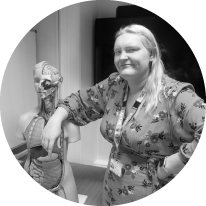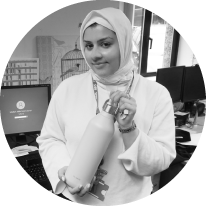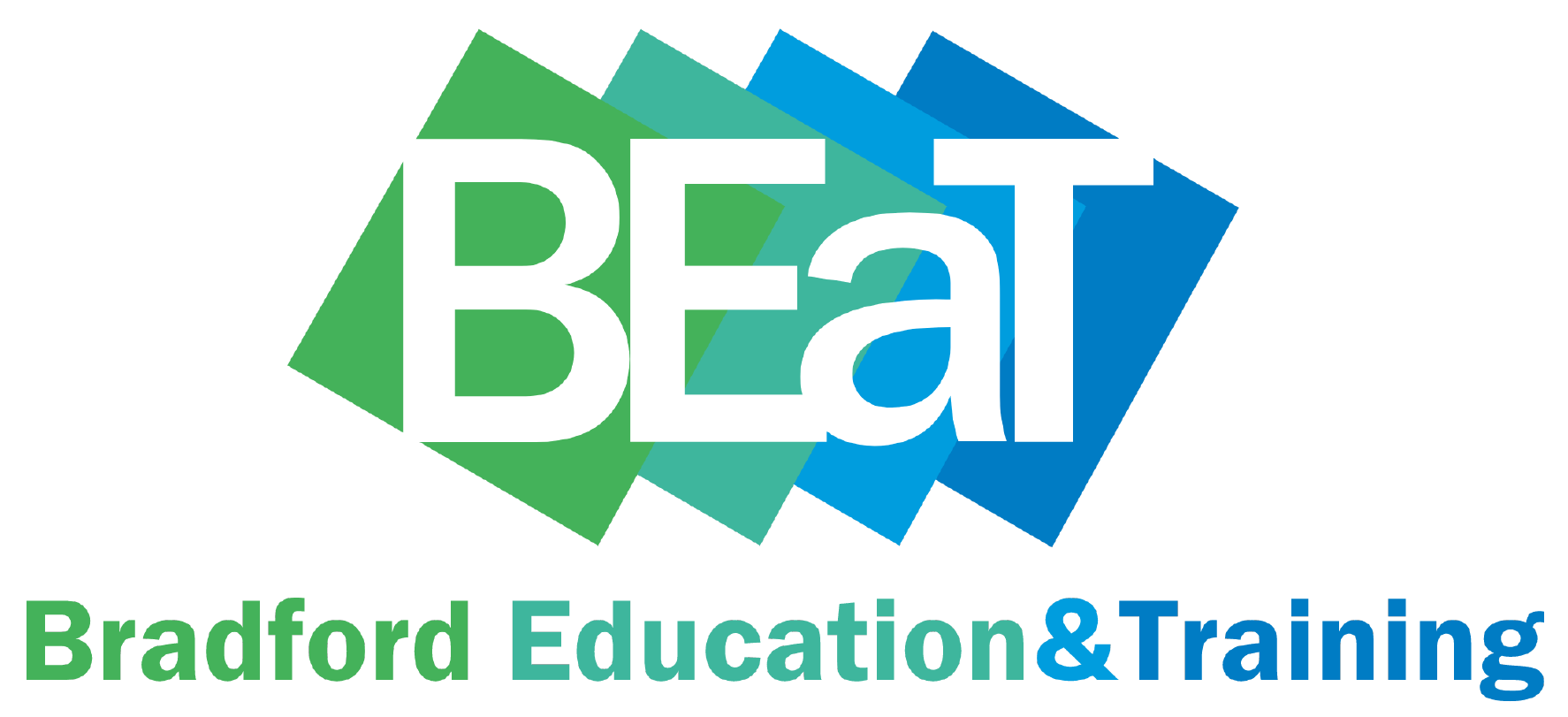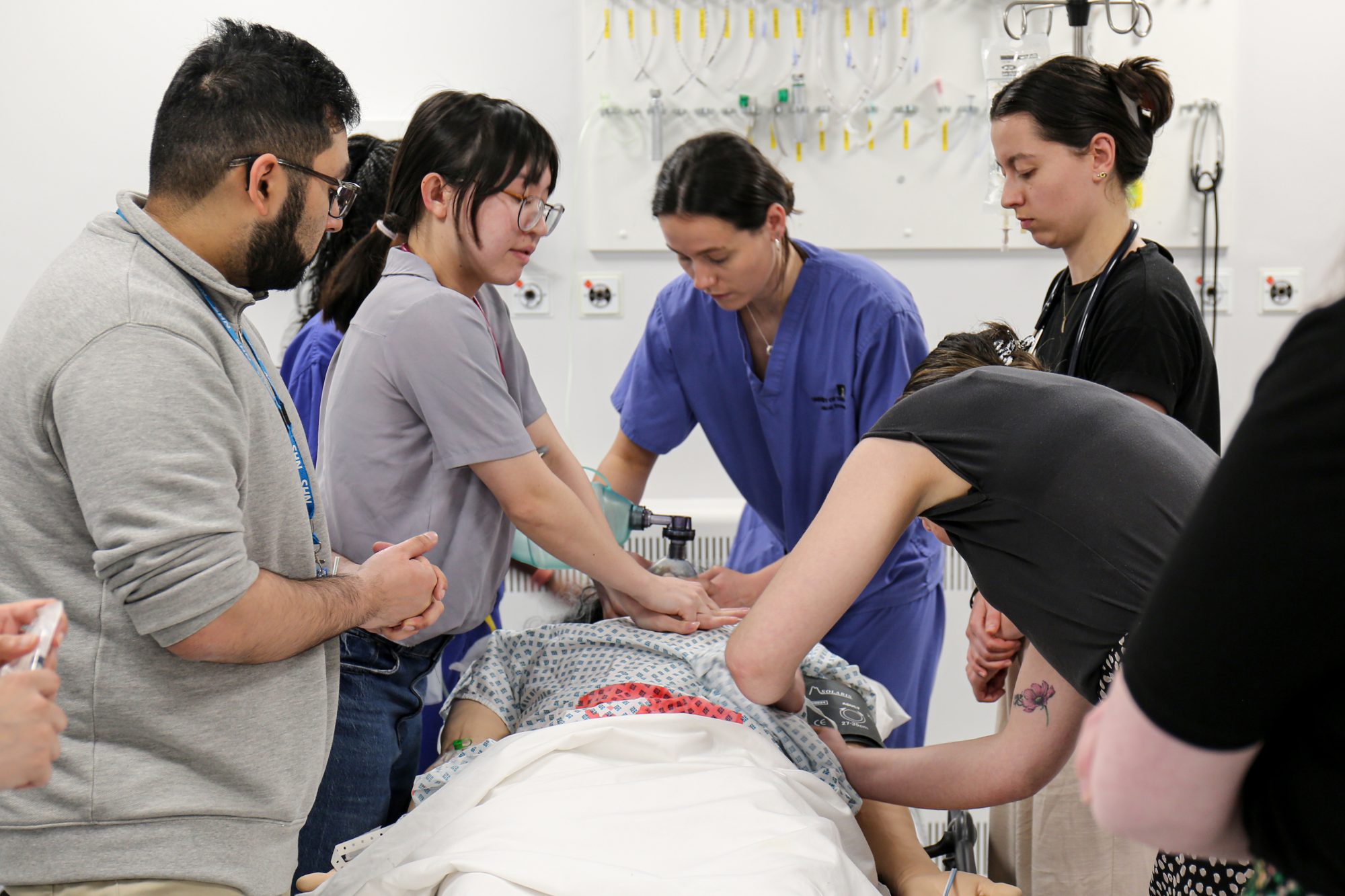About us
Bradford Teaching Hospitals NHS Foundation Trust (BTHFT) is one of the main secondary care placement providers for students on the MBChB Programme at the University of Leeds. We also provide placements to trainee Physician Associates from the University of Leeds and the University of Bradford.
Clinical placements are provided in all departments, supported by dedicated Clinical Placement Supervisors. Students will work as part of the multidisciplinary team to develop their knowledge, skills and attitudes through direct patient contact and clinical experience.
The Undergraduate Medical Education Team within Bradford Education and Training are dedicated to support medical students and trainee Physician Associates during their placements here at BTHFT, by providing pastoral support, education and training. We are a multi-professional team, comprising of an Education Lead, Education Fellows, Clinical Educators and Administrators. As a team, we are very experienced health professionals from a range of clinical backgrounds including Nursing, Midwifery and Medicine.
The Undergraduate Medical Education Team are responsible for the planning and delivery of a comprehensive teaching program for medical students and trainee PA’s. We work in close collaboration with all clinical areas and departments to provide the best learning experiences for students. We provide education and teaching in classrooms, based in Fieldhouse, and in clinical areas at the patients’ bedside.
Coming on placement at BTHFT?
All information will be sent to you in good time before you are due to start including induction date, time and location. It is usually during or just after induction where you can get your security access card car parking permits and accommodation keys if you have requested this. Access to our IT systems is made available and logins with training will be sent via email also.
Whilst on placement at BTHFT you can expect to be treated like a Trust employee and integrated into the teams you are placed with. However, with that comes an expectation that you will uphold the standards we ask of you.
You should never travel to placement in scrubs or uniform that you will wear clinically.
We have changing facilities on site that are accessible to students. We have a learners storage facility where you can use your own padlock to ensure your belongings are secure. Long hair should be tied up and off the collar and we should be bare below elbow when in clinical areas. Further information on uniform policy will be explained at induction.
We understand that absences may occur through sickness or other reasons, all that we ask is that you ensure we have free flowing communication channels from yourself to your supervisor, the Undergraduate team and reporting absence through your university software where absences are logged.
Depending on your year group there will be different opportunities available. They will all be highlighted at induction but you can be sure that there will always be some learning at BTHFT. Feedback in recent years has been particularly complimentary to the teaching quality and frequency that we offer medical students and tPA’s whilst on placement.
We are fortunate enough to have a dedicated library on site at BRI in Field House which is accessible 24/7 and staffed during office hours. Resources are plenty in our library and if you cannot find reference to a particular subject then our library staff will be more than happy to help you find resources. They are based next to reception in Field House to find out more information.
The Undergraduate Medical Education Team are dedicated to support you during your placement so please come to the team for guidance and support. Our office is based on B floor of Fieldhouse. Please simply knock and enter as someone is usually around to answer questions, sign-post or chat about something that is troubling you. Alternatively, you can email a member of the team or give us a call. Details will be provided during your induction.
If you feel that you cannot speak to a member of the team, but have a concern you wish to report, you can follow Trust guidelines in relation to Freedom to Speak up and email speakup.guardian@bthft.nhs.uk.
We often ask for feedback during our interventions with you and keen to see how we can constantly improve. If you have any informal comments about your time here, we are keen to hear them, please speak to any member of the team or alternative contact methods listed in induction.
What have we achieved recently?
- Team Clinical Teaching Excellence Award from Leeds Institute Medical Education 2023
- Longstanding Teaching Excellence Award from Leeds Institute Medical Education 2023
- Hosted a regional conference for Undergraduate Teams across West Yorkshire to come and showcase work- MEETUP (Medical Education Excellence Through Undergraduate Projects) 2023
- Excellent Longstanding Service Award 2024
- Clinical Teaching Development Award 2024
Elective Student Application Information
The Trust welcomes applications for a limited number of elective placements for medical students from the UK. The placements provide an opportunity to experience the complexity and diversity of healthcare provision in an acute setting. A limited number of placements are available and demands are high.
Electives placements are usually hosted from mid-June and must be completed by the end of August, for a duration of up to 4 weeks. You can specify up to two speciality requests on the application form, but these are not guaranteed. Electives are only available in one speciality and cannot be split.
Application forms are available from November to January and the deadline for submission of applications (Stage 1) is the end of January for consideration for a summer placement of the same year. You can request an application form from November by emailing undergraduate@bthft.nhs.uk
Please note we have currently suspended our offer of medical elective placements to students from international medical schools this year. This is to allow a review of our processes. We hope to re-establish in Summer 2026.
Widening Participation Days
At Bradford we are proud to host a 2-day event for school pupils who are planning on proceeding with a career in Medicine. These days are aimed at A-Level pupils, at schools in our local community. Our aim is to provide information, and practical advice in supporting application and interviews for medical schools.
This is the first of our two days looking primarily at UCAS applications, geographical landscape of medical schools and medical school specific admission policies. It is targeted towards students towards the end of year 12, who are planning on applying to Medical Schools. You will get chance to discuss these factors with clinical colleagues who will facilitate the event, to include consultants, resident doctors, and medical students. In the afternoon you will get the opportunity to get hands on and have a go at some of the skills you would encounter throughout medical training and a career as a doctor.
This is the second of our two days looking into the unanswerable question of ‘how do you pass a medical school interview’, you can expect expert talks on well researched techniques and how interviews are set out and the variation this may include from medical school to medical school. In the afternoon you will be put to the ultimate test and get to sit a Multiple Mini Interview (MMI) circuit with a multitude of challenges and communication conundrums.
We tend to advise attending the days as a pair with ‘Introduction to Medicine’ coming first however we appreciate sometimes people miss application and so if you would like to enquire about either of these days individually or as a pair, please contact: Apprentice.queries@bthft.nhs.uk
Meet the Team

Dr Amy Illsley
Deputy Director of Undergraduate Medical Education
Amy.Illsley@bthft.nhs.uk

Joanne Conway
Senior Medical Education Fellow
Joanne.Conway@bthft.nhs.uk

Sara Willis
Education Lead for Undergraduate Medical Education
Sara.Willis@bthft.nhs.uk

Bethany Santaras
Clinical Educator
Bethany.Santaras@bthft.nhs.uk

Ursula Wood
Clinical Educator
Ursula.Wood@bthft.nhs.uk

Laurie Foxcroft
Clinical Educator
Laurie.Foxcroft@bthft.nhs.uk

Harriet Cox
Clinical Educator
Harriet.Cox@bthft.nhs.uk

Fatima Daji
Clinical Educator

Dr Abbie Proctor Clarke
Junior Medical Education Fellow
Abigail.Proctor@bthft.nhs.uk

Dr Rachel Burnley
Junior Medical Education Fellow
Rachel.Burnley@bthft.nhs.uk

Dr Madiah Mahmood
Junior Medical Education Fellow
Madiah.Mahmood2@bthft.nhs.uk

Dr Nathan Blott
Junior Medical Education Fellow
Nathan.Blott@bthft.nhs.uk

Ishwa Idrees
Education Administrator
Ishwa.idrees@bthft.nhs.uk

Mehreen Nawaz
Education Administrator
Mehreen.Nawaz@bthft.nhs.uk


